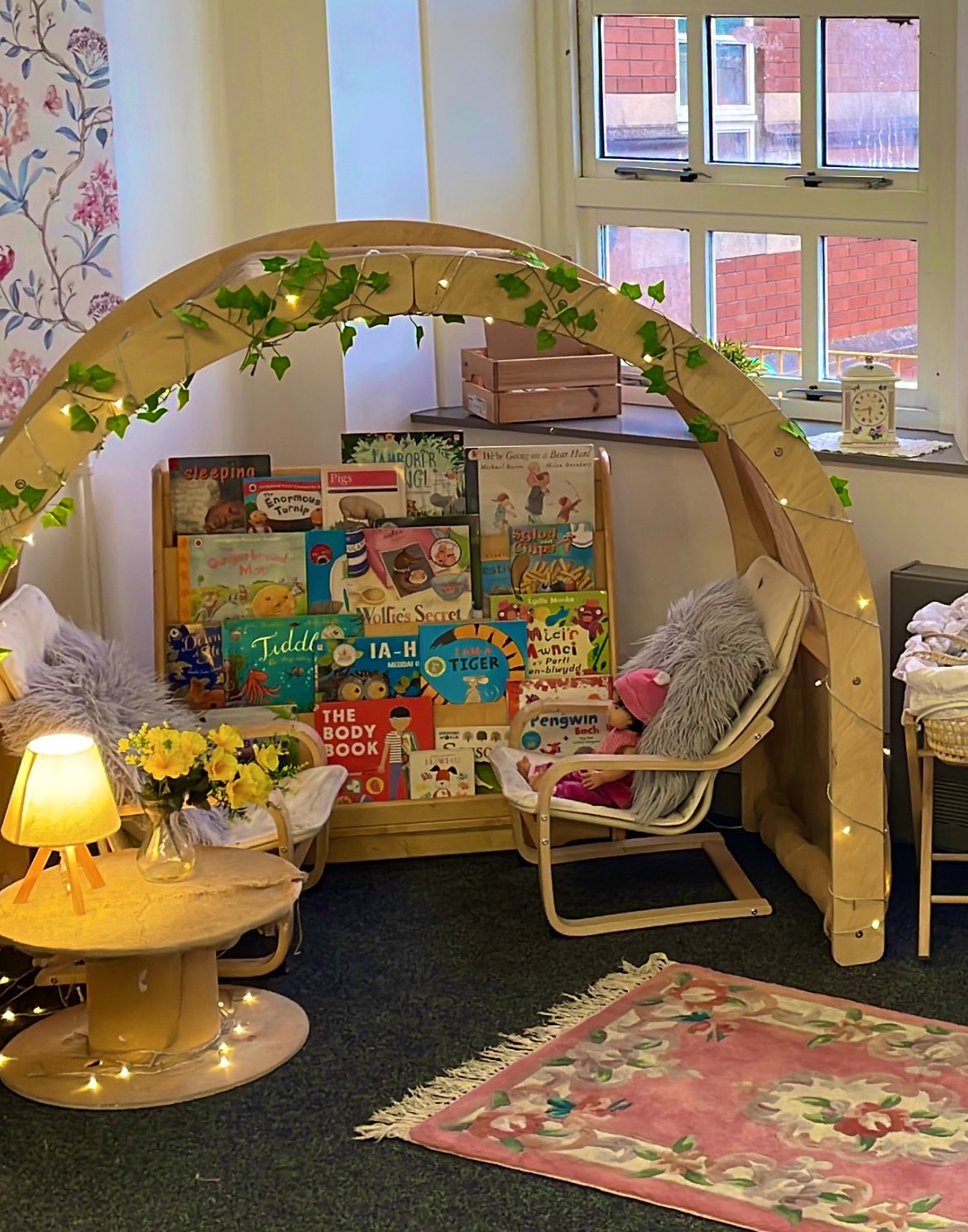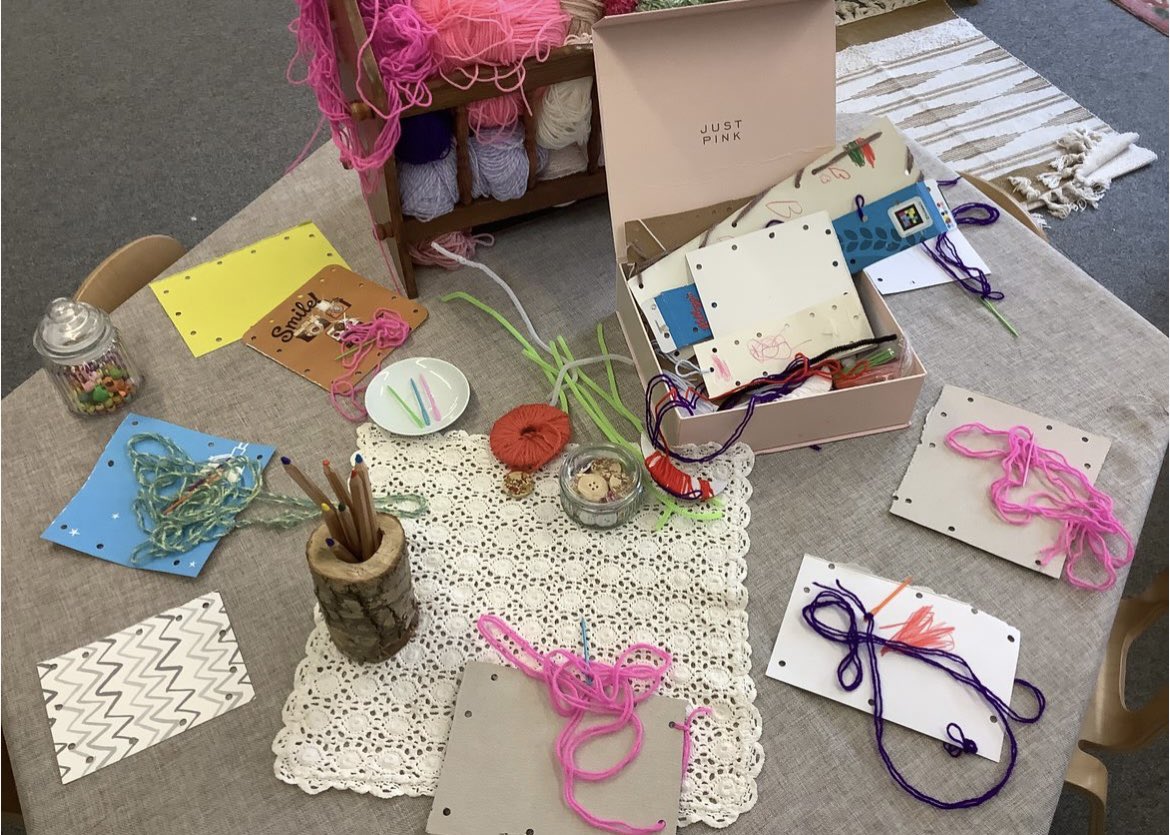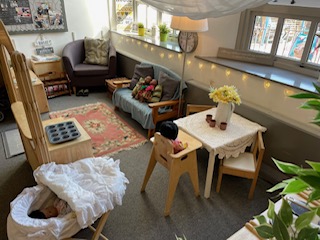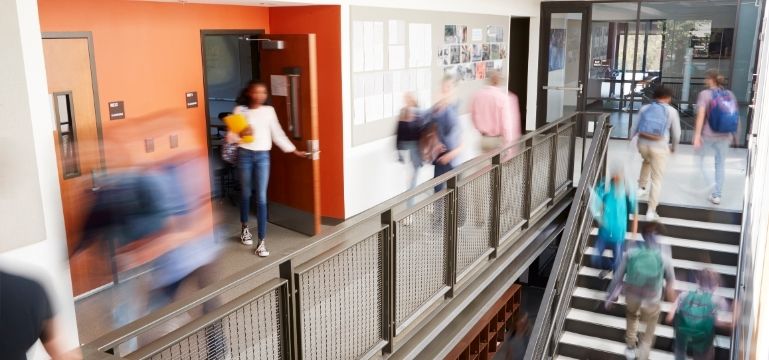
Information about the school
Cefn Hengoed Community School is an English-medium 11-16 school maintained by Swansea local authority. The school is based in the Eastside of Swansea. There are 918 pupils on roll. Around 33% of pupils are eligible for free school meals. Around 10% of pupils are learning English as an additional language. The school has a specialist teaching facility (STF) for pupils with severe to moderate learning difficulties. The capacity of the STF is 20 pupils.
The percentage of pupils with additional learning needs (ALN) is around 47.4% of the overall school population. The proportion of pupils who have a statutory plan of additional learning needs (Statement/EHCP/IDP) is approximately 6% (including the STF).
The senior leadership team consists of the headteacher (appointed in 2017), the deputy headteacher, two assistant headteachers and two senior teachers.
Context and background to the effective or innovative practice
Cefn Hengoed Community School prioritises supporting those families from the school community that are affected by the impact of poverty. Over 33% of pupils are eligible for free school meals, rising to 44% when transitional protection to Universal Credit is considered, with many families struggling to manage financially. The school receives around £319K of Pupil Development Grant funding each year. In addition, 37.3% of pupils live in the 20% most deprived areas of Wales, according to the Welsh Index of Multiple Deprivation. Consequently, tackling the impact of poverty has been a long standing school priority, with the main focus being the development of the school as a focal point for the community. The school designs all aspects of its well-being provision to ensure that every pupil in the school is able to access all areas of school life, positively impacting on attendance, attitudes to learning and outcomes. A key priority for the school is to raise pupils’ aspirations and encourage them to make positive progress in their learning. There is a notable focus on improving pupil attendance and a clear understanding that tackling the impact of poverty is a key factor in enabling this.
Description of nature of strategy or activity
At Cefn Hengoed Community School, leaders and pastoral staff plan strategically to effectively support those families in most need. Strategies are informed by research and best practice, but also through leaders and staff having extensive local knowledge of the school community. As a result of this work, vulnerable pupils, including those who are eligible for free school meals make strong progress from their starting points and generally engage positively in school.
The pastoral team has secured strong community engagement. Excellent home to school links underpin the school community, with positive relationships key to the success of building trust and engagement. The school employs three Pastoral Support Officers (PSOs), whose main focus is to develop positive relationships with pupils and their families. This helps the school to secure improvements in attendance, well-being and attainment. The team works successfully with pupils to limit any barriers to their learning. The PSOs are in contact with families through regular phone calls, text messages, and meetings. When required, PSOs undertake home visits and are instrumental in identifying poverty as a barrier to learning. The PSOs work closely with the Key Stage 3 School Manager, Year 9 Learning Manager and Key Stage 4 School Manager, all of whom have a light teaching load to enable them to support pupils and families on the ground.
The school also employs a Wellbeing Manager who has extensive links with the community and with external agencies. They work closely with the school’s most vulnerable learners and their families. Pivotal to the pastoral team’s success is their local knowledge of the community and its families. This helps them to identify and signpost those families struggling with poverty at an early stage, allowing for effective support and intervention.
Cefn Hengoed collaborates well with its cluster primary schools and together they effectively utilise the Looked After Children (LAC) Pupil Development Grant funding to employ a Cluster LAC Support Officer. The LAC Support Officer works closely with children looked after by the local authority across all seven schools, removing barriers to pupil well-being and learning, as well as supporting with transition.
The school has established a school well-being fund. Contributions are made to this fund by staff, local businesses and a small number of financially successful ex-pupils. This, along with regular fund raising events, is used to provide food hampers at key times during the year, as well as fuel vouchers. The school also supports those families and pupils who suffer from significant hardship due to bereavement, personal tragedy or physical injury. The Wellbeing Manager has close links with the local Eastside food bank and St Thomas Church’s after school meal service. All pupils are issued with fortnightly ‘Wellbeing Slips’ during Personal and Social Education (PSE) lessons. This provides learners with a confidential opportunity to share their worries and concerns with pastoral staff who are then able to identify issues not only relating to poverty, but also other aspects of well-being. This strategy has been invaluable in identifying pupils and families in need of the most support and is key to enabling the child to fully engage with school life. For example, the support offered includes the purchasing of uniform, PE kit, school equipment and, in some cases, extends to the provision of homeware such as bedding and furniture.
The school works tirelessly with the local community in an effort to address any barriers to learning, particularly as an impact of poverty. A large number of children live just inside the 3 mile radius, meaning that they miss out on free transport and walking to school is a notable challenge. To support with this, the school works successfully with important community partners, such as local community councillors and with local and national transport providers to provide a bus service at less than half the cost of public transport. This has helped improve pupils’ attendance and punctuality as well as reducing the cost of the school day.
The school continues to run successful breakfast clubs for all age groups. Year 7 receive a bespoke breakfast service through the school’s partnership with the local authority catering service, whilst Years 8 to 11 have access to the school-based breakfast provision. This is a cost neutral affordable breakfast offer, allowing pupils to benefit from the advantages that a nutritious breakfast delivers. This has also supported the school to improve punctuality at the beginning of the school day.
The school offers an extensive out of hours revision service for both Key Stage 3 and Key Stage 4 pupils. These are well attended by pupils. Key Stage 4 pupils benefit from daily after school revision offers from both core and foundation subjects. Key Stage 3 pupils benefit from a range of after school homework clubs as well as workshops aimed at supporting specific needs such as dyslexia. Staff at the school coordinate holiday revision sessions regularly throughout the academic year. This is predominantly for Key Stage 4 pupils and impacts positively on their well-being and outcomes. There are also a number of additional extra-curricular clubs that are well attended by all groups of pupils.
The school’s successful uniform Swap Shop provides high quality recycled school uniform and essentials such as coats, shoes and school bags. The Swap Shop is successfully promoted at key times during the academic year through social media, and is well supported by local community groups. Positive working relationships between the school and its local community have meant that significant steps have been taken to remove the stigma associated with the recycling of uniform and instead promotes the Swap Shop as a positive initiative to reducing waste and unnecessary family expenditure.
The school supports digitally excluded learners through the provision of an innovative Laptop Library donated by a local organisation. Seventy five devices are available to pupils from all age groups for loan periods of up to half a term. Engagement has been high, with many pupils benefiting from improved access to digital technology. This has had a positive impact on pupil engagement, and in improving their digital skills.
The school is a hub of the community and as such hosts a broad range of events. These include the Key Stage 4 GCSE Information Evening, the Year 7 and 8 Help Your Child Revise Evening and an effective programme of Key Stage 2 to Key Stage 3 transition events. During the pandemic, the school developed an innovative series of virtual community events. These included informative and educational sessions exploring topics such as mental health, staying safe online, and sexual harassment and coercion. These were well valued by the community and have continued to be offered following the pandemic.
School leaders have made effective use of the School Health Research Network (SHRN) report to plan and target appropriate provision for pupils and their families. This has led to the introduction of Community Safeguarding Evenings which educate pupils and their families about important aspects such as substance abuse, healthy food and physical activity, sleep, and screen time and sexting. In addition, the school has run successful workshops for parents and carers demonstrating how to provide healthy meals on a budget. To support these events, the school has worked with a wide range of external partners and agencies, such as Barod, YMCA, CAMHS, and its school nurse and local community police officer. The events are interactive and held in the school’s community use areas, but are also recorded and available digitally to allow access to a wider audience. The school recognises that parental involvement in all aspects of their child’s education has a powerful impact on their attainment and well-being.
What impact has this work had on provision and learners’ standards?
The school has taken a measured yet proactive approach to developing the range of interventions to tackle poverty. It has utilised pupil views, for example through the SHRN report, and responded appropriately, whilst also using external agencies and involving the whole school community in the development of the provision.
The school has broadened its support for pupils and families struggling with the cost of living through targeted provision such as the Laptop Library and Swap Shop. Initiatives such as the fortnightly Wellbeing Slips allow pupils confidential access to support and guidance. This enhances the already strong pastoral provision.
The collective impact of the range of measures employed by the school continues to have a positive impact on the aspirations and outcomes of the pupils. Alleviating poverty, whilst developing community links, breaks down barriers to learning, improves well-being and develops a positive attitude to learning. Pupils at Cefn Hengoed are motivated and resilient learners.
Pupils are increasingly able to demonstrate awareness of healthy eating and are able to reflect on their physical and mental health. Learners engage in the wide range of extra-curricular opportunities, including those held during and after school. They take advantage of the additional academic support on offer. This has contributed to consistently strong outcomes.
Pupil attendance, including the attendance of vulnerable groups and those pupils eligible for free school meals, has improved notably and pupils who are eligible for free school meals make effective progress and attain well as the progress through the school. Pupils are respectful of the school’s high standards and this is demonstrated through their positive attitudes to learning. The rate of fixed term exclusions remains low and compares favourably to pre-pandemic levels.
How have you shared your good practice?
The school has shared this practice through a range of professional networks both within and outside of the local authority.
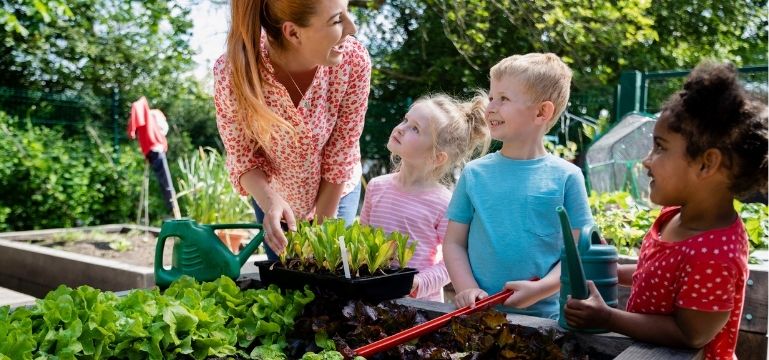
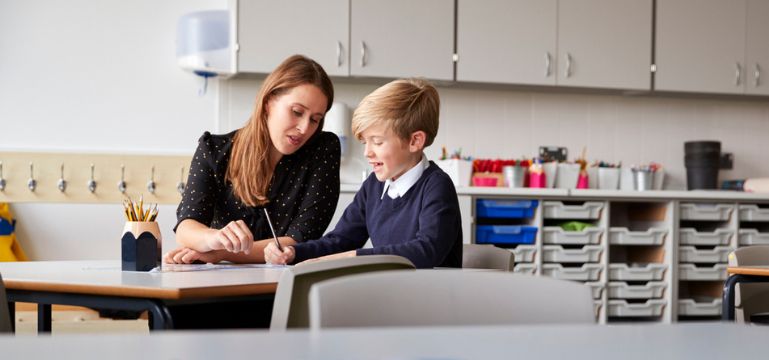
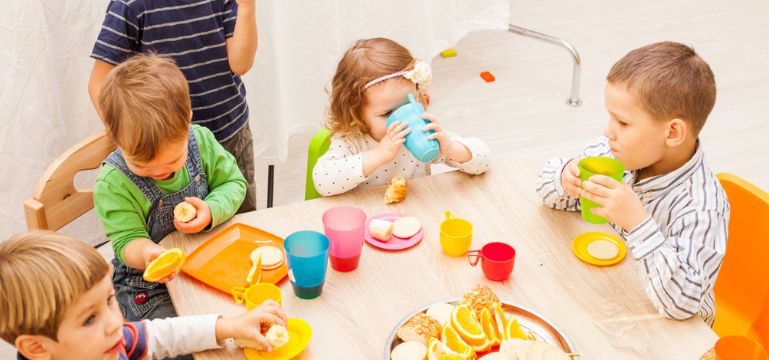
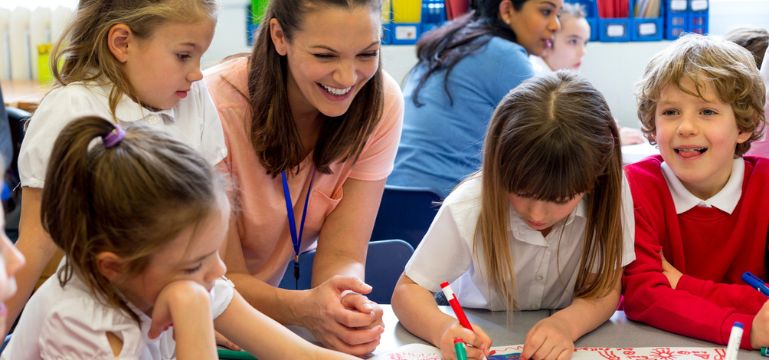
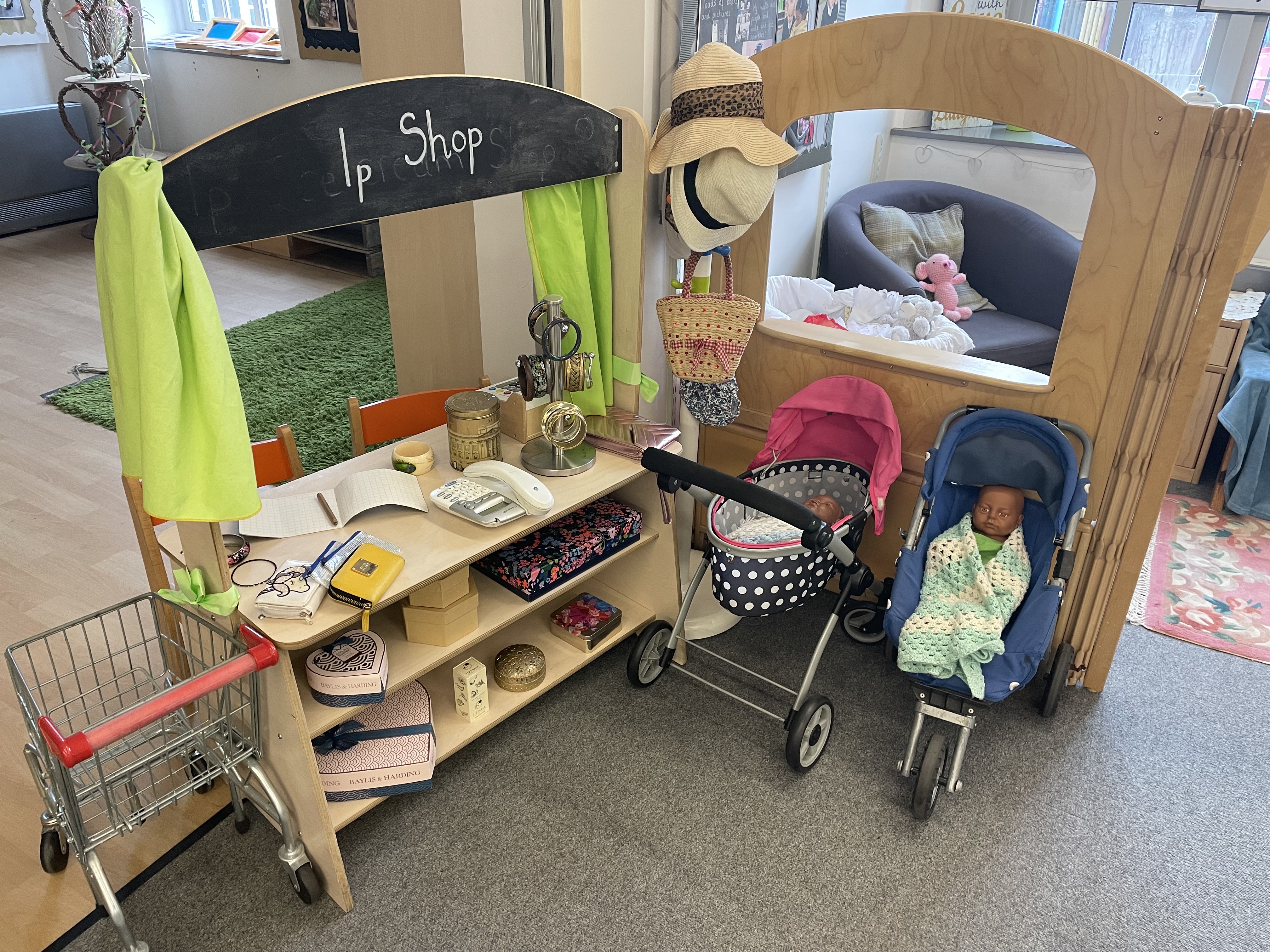 Leaders, teachers and teaching assistants at St. Andrew’s aim to provide authentic and purposeful learning experiences for all pupils through the three enablers underpinning the non-maintained curriculum. Staff have been inspired by its focus on the importance of play, schema and Froebelian principles. Practitioners in the school’s early years classes highlight the importance of deep-level involvement and uninterrupted active play for pupils, rooted in real-life, authentic situations.
Leaders, teachers and teaching assistants at St. Andrew’s aim to provide authentic and purposeful learning experiences for all pupils through the three enablers underpinning the non-maintained curriculum. Staff have been inspired by its focus on the importance of play, schema and Froebelian principles. Practitioners in the school’s early years classes highlight the importance of deep-level involvement and uninterrupted active play for pupils, rooted in real-life, authentic situations.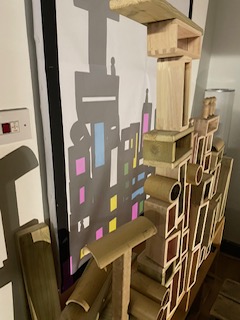 Practitioners adopt the notice, analyse and respond approach to observing younger pupils engagement with learning experiences indoors and outdoors. Froebel’s “freedom with guidance” approach encourages staff to facilitate pupils’ learning, offering them open-ended responsibility. Staff use planned and spontaneous observation approaches. During the ‘notice’ stage they seek to find out what drives pupils’ interest or curiosity, as well as how pupils choose resources and use the space available to them. During the ‘analyse’ stage, practitioners interpret pupils’ skills and knowledge development, assess their progress and analyse a pupil’s preferred schema. For example, whilst exploring teleporting within the block area, pupils demonstrate enjoyment in making enclosures (enclosure schema) using the blocks. Finally, observations are used as a catalyst for planning future learning experiences. This may include staff making adaptations to the environment, planning opportunities for pupils to refine or consolidate a skill and enrich experiences further.
Practitioners adopt the notice, analyse and respond approach to observing younger pupils engagement with learning experiences indoors and outdoors. Froebel’s “freedom with guidance” approach encourages staff to facilitate pupils’ learning, offering them open-ended responsibility. Staff use planned and spontaneous observation approaches. During the ‘notice’ stage they seek to find out what drives pupils’ interest or curiosity, as well as how pupils choose resources and use the space available to them. During the ‘analyse’ stage, practitioners interpret pupils’ skills and knowledge development, assess their progress and analyse a pupil’s preferred schema. For example, whilst exploring teleporting within the block area, pupils demonstrate enjoyment in making enclosures (enclosure schema) using the blocks. Finally, observations are used as a catalyst for planning future learning experiences. This may include staff making adaptations to the environment, planning opportunities for pupils to refine or consolidate a skill and enrich experiences further.